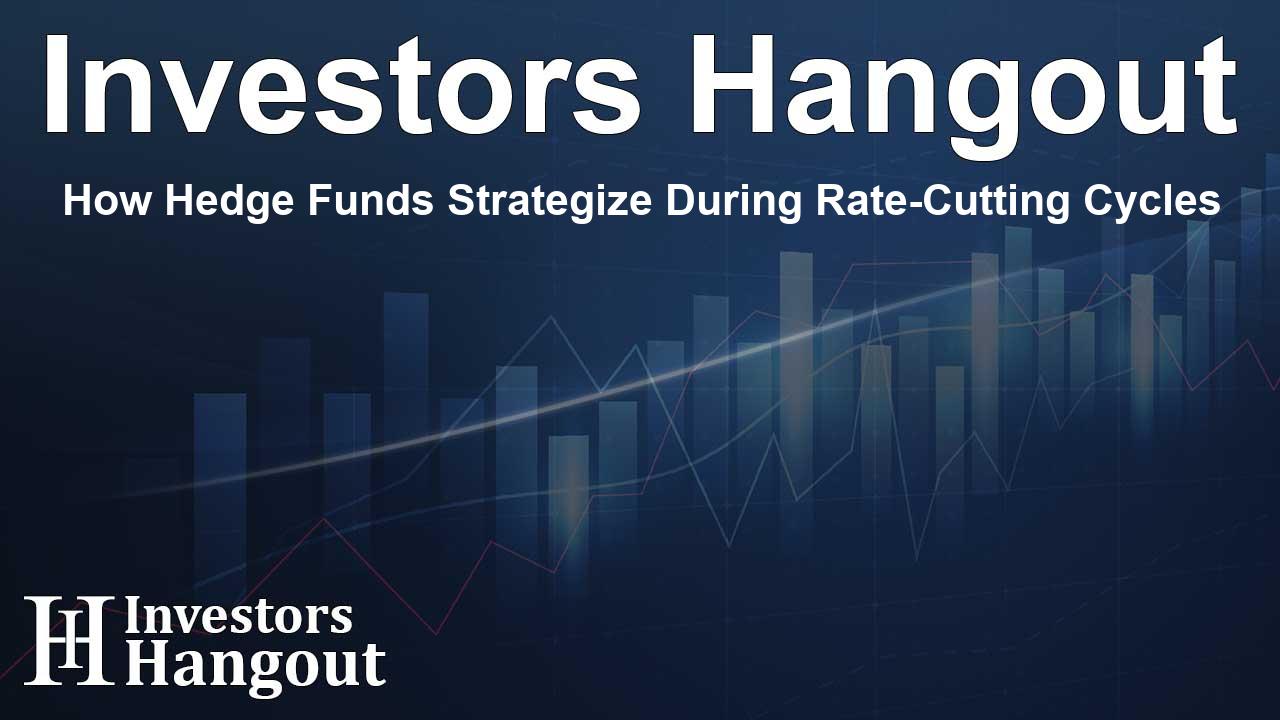How Hedge Funds Strategize During Rate-Cutting Cycles

Hedge Fund Strategies in a Rate-Cutting Environment
As the economy shifts, many investors are considering what falling interest rates mean for them. Some see this as a chance for a stable economic transition, while others believe it might just be a calm before a financial storm. This article explores various hypothetical trading strategies suggested by hedge funds as the U.S. enters a potential easing cycle.
Insights from Confido Capital
Founded in 2024, Confido Capital is recognized for its focus on generating higher income strategies. Brad Boyd, the founder, discusses how the expectation of falling interest rates has inflated prices for equities and credits, leading to significant risk imbalances in the market.
Boyd proposes a strategy that includes shorting risk assets—like stocks, lower-rated corporate bonds, real estate, and stocks from emerging markets. To hedge against these risks, he recommends buying credit default swaps, which provide a safety net in the bond market.
Rather than concentrating on individual firms, Boyd favors taking long positions with a selection of credit default swaps, specifically through the HY CDX, which features 100 high-yield bonds in the U.S. However, he warns that the market's optimism regarding the Fed's easing could be misplaced, suggesting corrections may occur if these anticipated cuts don't happen.
Opportunities Highlighted by Monroe Capital
Next, let's look at Monroe Capital, which manages around $19.5 billion and was established in 2004. Their strategy is centered on direct lending and alternative credit solutions. Kyle Asher, co-head of alternative credit solutions, notes that the secondaries market will be critical as the Fed is expected to cut rates.
The secondaries market involves the trading of various financial instruments—like stocks, bonds, and loans—often connected to private equity and other investor transactions. Asher believes that reduced rates will likely benefit multiple sectors, particularly software, business services, and media companies.
As interest rates drop, both corporate and consumer borrowing costs significantly decrease, resulting in better cash flow for mid-sized private firms with existing loans trading at lower values. This uptick in cash flow allows these companies to invest in growth activities, such as research and development, marketing, and hiring new staff.
Analog Century Management's Long/Short Approach
Another noteworthy hedge fund, Analog Century Management, was founded in 2018 and manages $1.8 billion. Under the leadership of Val Zlatev, this fund targets the hard tech sector, focusing on companies involved in semiconductor production, communication equipment, and system hardware.
Zlatev breaks these companies down into two categories: those on a growth trajectory and those reliant on established application spending like smartphone and PC hardware. He points out that semiconductor firms, especially those catering to the automotive and industrial markets, have struggled with declining revenues, entering a technical recession for several quarters.
Despite this, Zlatev is hopeful that lower interest rates could spark a rebound in industrial spending. If borrowing becomes more accessible for consumers, particularly for vehicle purchases, this surge in demand could lead to better earnings for manufacturers and, in turn, a bump in their stock prices.
General Implications of a Rate-Cutting Cycle
The insights shared by these hedge funds present a variety of strategies as they brace for the potential effects of a U.S. rate-cutting cycle. Each firm, while having its unique focus, shares a common thread of caution and strategic positioning to navigate the upcoming changes in market conditions. As the economic scene continues to evolve, it will be fascinating to see how these strategies play out and their broader market implications.
Frequently Asked Questions
What is the main focus of the article?
This article explores the hypothetical trading strategies of hedge funds in light of a potential rate-cutting cycle in the U.S. and their implications for the market.
What strategies are highlighted by the hedge funds?
Key strategies include shorting risk assets, acquiring credit default swaps, and leveraging opportunities in the secondaries market across different sectors.
Why do hedge funds engage in shorting risk assets?
Hedge funds may choose to short risk assets to protect against expected market declines or due to beliefs that certain assets are overvalued.
What effect do Fed rate cuts have on various sectors?
Generally, Fed rate cuts reduce borrowing expenses, which can benefit sectors like software and business services while enhancing cash flow for private firms.
What is the investment focus of Analog Century Management?
Analog Century Management specializes in hard tech, particularly semiconductor manufacturing for both industrial and automotive uses.
About The Author
Contact Evelyn Baker privately here. Or send an email with ATTN: Evelyn Baker as the subject to contact@investorshangout.com.
About Investors Hangout
Investors Hangout is a leading online stock forum for financial discussion and learning, offering a wide range of free tools and resources. It draws in traders of all levels, who exchange market knowledge, investigate trading tactics, and keep an eye on industry developments in real time. Featuring financial articles, stock message boards, quotes, charts, company profiles, and live news updates. Through cooperative learning and a wealth of informational resources, it helps users from novices creating their first portfolios to experts honing their techniques. Join Investors Hangout today: https://investorshangout.com/
The content of this article is based on factual, publicly available information and does not represent legal, financial, or investment advice. Investors Hangout does not offer financial advice, and the author is not a licensed financial advisor. Consult a qualified advisor before making any financial or investment decisions based on this article. This article should not be considered advice to purchase, sell, or hold any securities or other investments. If any of the material provided here is inaccurate, please contact us for corrections.
